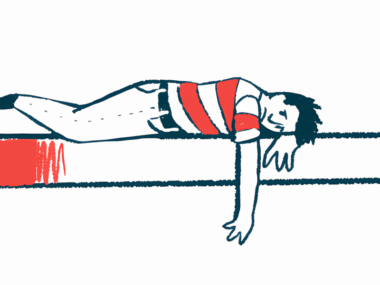The hidden symptoms of hemophilia we rarely talk about
We cope with fatigue, brain fog, and anxiety as well as joint bleeds
Written by |

When people hear the word “hemophilia,” they often picture severe bleeding, bruising, or swollen joints. Those are the visible symptoms, the ones doctors, nurses, and even family members understand. But living with a bleeding disorder is so much more than what meets the eye.
There are symptoms we don’t talk about enough, the ones that don’t show up in blood work or on an MRI. They don’t leave physical scars, but they shape our daily lives as much as a joint bleed or a hospital visit.
Managing a bleeding disorder takes energy, more than most people realize. Our bodies work harder to heal even the smallest injuries, and that takes a toll. Women especially battle anemia and iron deficiency. Some days fatigue washes over me like a heavy blanket, making even simple tasks feel overwhelming.
It’s not the kind of tiredness that a good night’s sleep fixes. It’s deep, persistent, and often misunderstood. “You look fine,” people say, unaware that my body is fighting in ways they can’t see.
Even when a bleed is resolved, the pain can linger. Joint damage from repeated bleeds doesn’t just disappear when the swelling goes down. Many of us live with arthritis or chronic joint pain, often years before people without a bleeding disorder would expect to develop it.
This kind of pain isn’t always dramatic; it can be a dull ache in the morning, a sharp twinge when I move the wrong way, or a stiffness that reminds me my joints have a history they won’t let me forget.
Brain fog and other mental issues
Have you ever woken up in a hotel room and forgotten where you are? Imagine that feeling, but all the time. Brain fog is real, and it’s frustrating. Whether it’s from chronic pain, fatigue, or the emotional toll of managing a lifelong condition, my mind sometimes feels like it’s running on a delay.
I struggle to find words, forget small details, or feel like my thoughts are stuck in molasses. It’s not a sign of laziness or distraction; it’s another hidden symptom of living with hemophilia or another a chronic condition.
Even on good days, there’s a background noise of worry. What if I get hurt and can’t access my treatment in time? What if this pain means another joint bleed? What if insurance denies my medication?
Anxiety isn’t listed on any hemophilia fact sheet, but it should be. We learn to be hyperaware of our bodies, always scanning for signs of a problem. That constant state of alertness can be exhausting.
These hidden symptoms don’t come with dramatic visits to the emergency room or visible bruises, but they are just as real. We need to talk about them, not just among ourselves but with doctors, caregivers, and even employers. Understanding the unseen parts of hemophilia helps us create a world that truly supports those of us living with it.
If any of this sounds familiar, you’re not alone. It’s time we start talking about all of hemophilia, not just the parts people expect to see.
Note: Hemophilia News Today is strictly a news and information website about the disease. It does not provide medical advice, diagnosis, or treatment. This content is not intended to be a substitute for professional medical advice, diagnosis, or treatment. Always seek the advice of your physician or another qualified health provider with any questions you may have regarding a medical condition. Never disregard professional medical advice or delay in seeking it because of something you have read on this website. The opinions expressed in this column are not those of Hemophilia News Today or its parent company, Bionews, and are intended to spark discussion about issues pertaining to hemophilia.




David Woolfolk
I would like to try it.